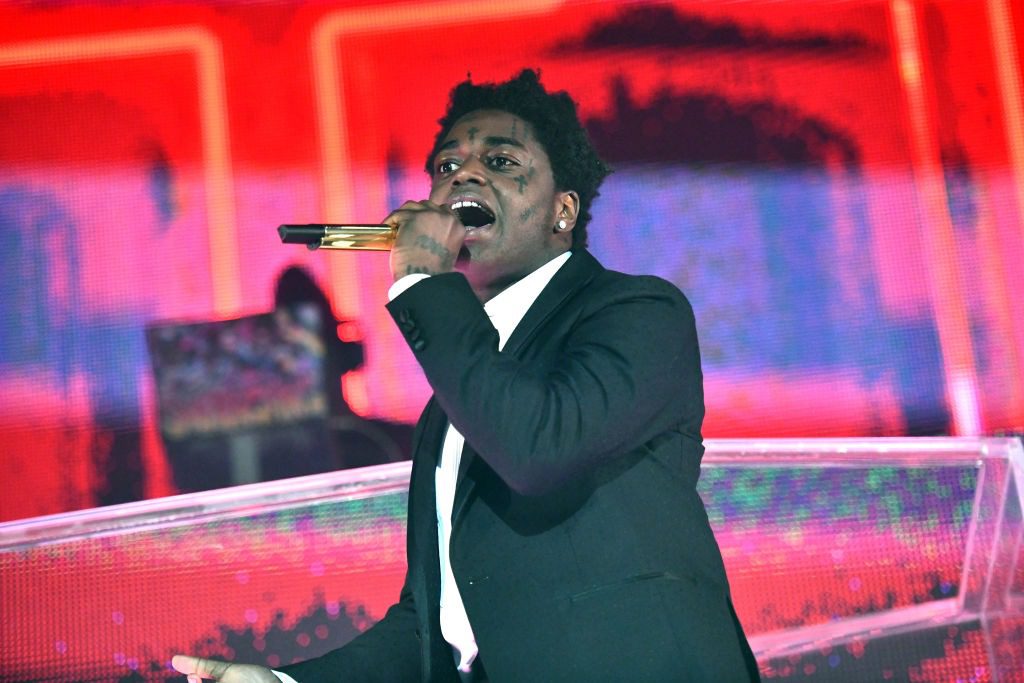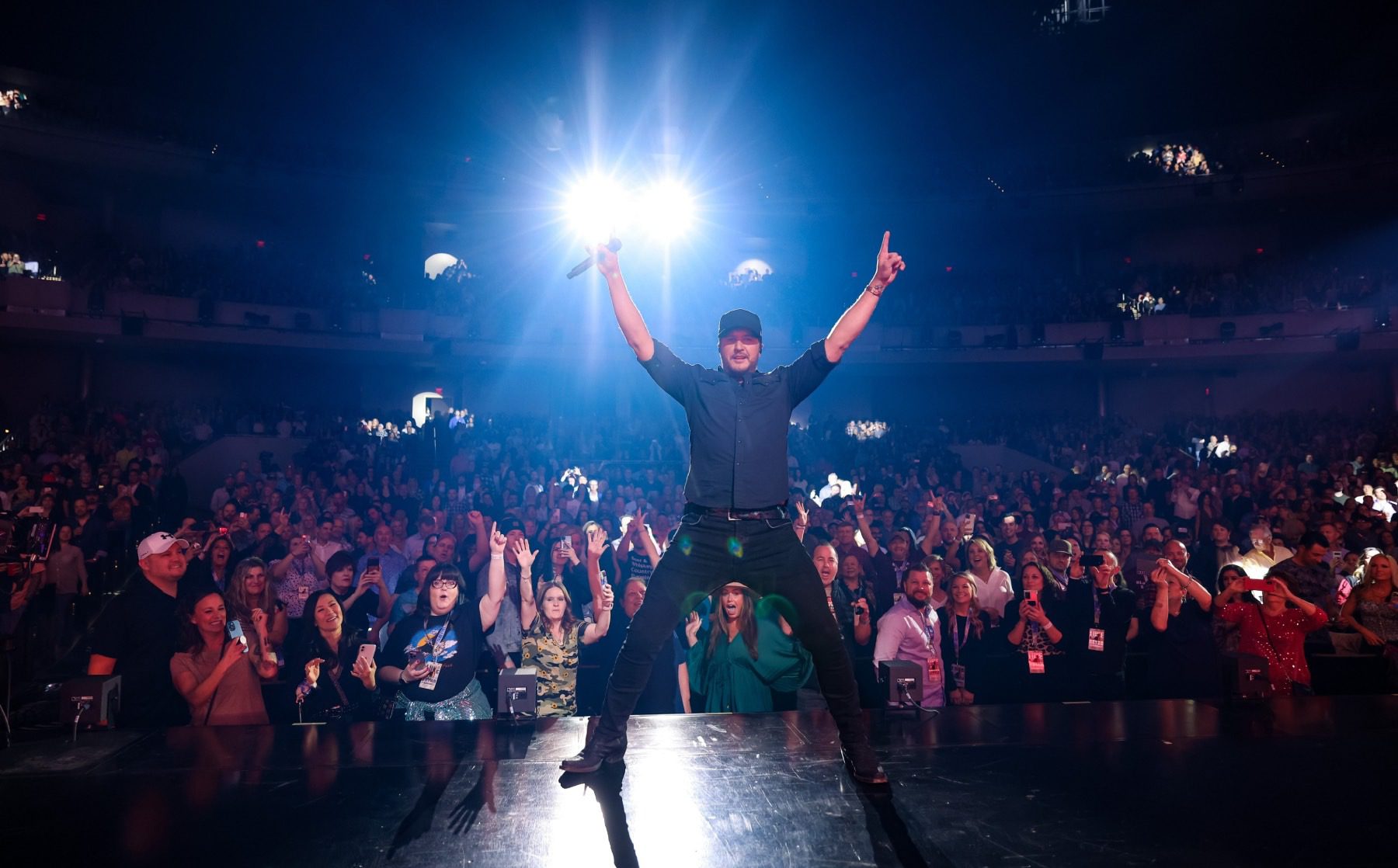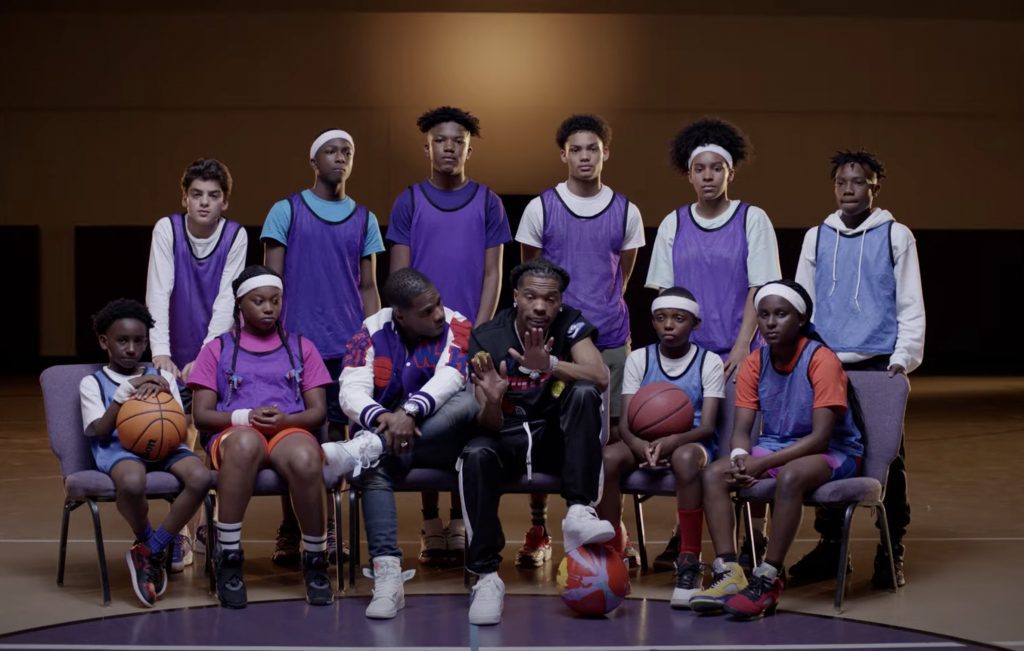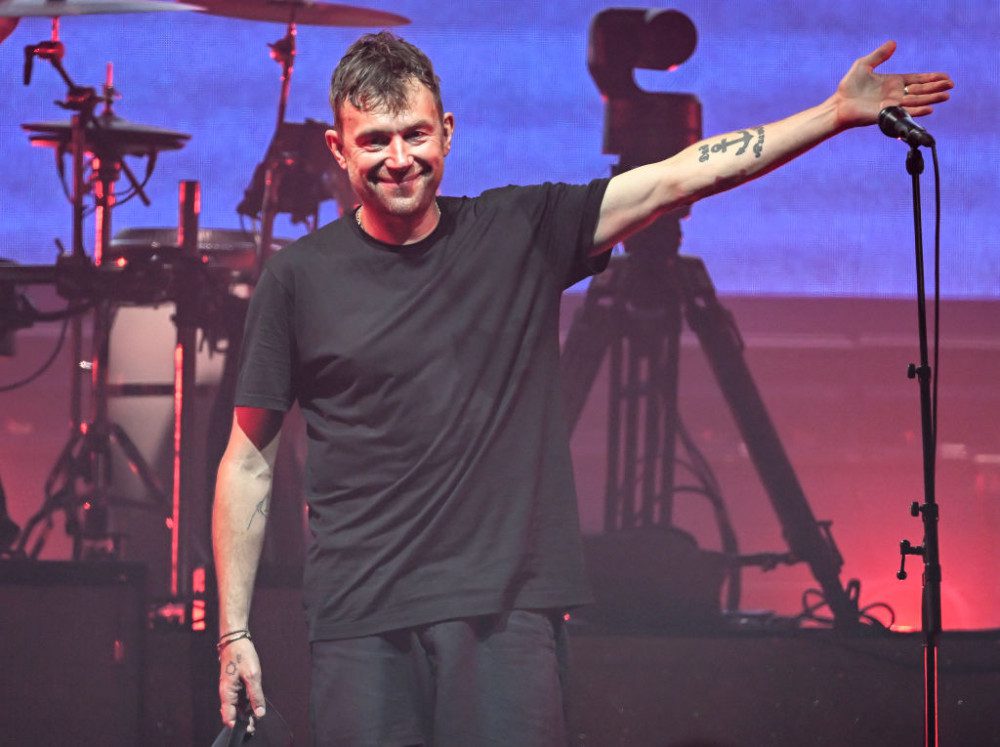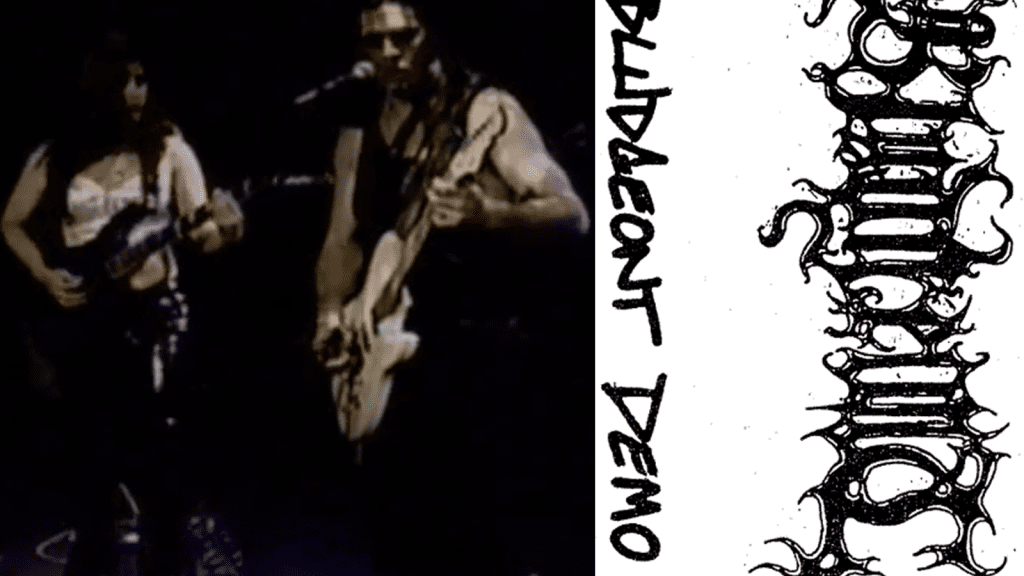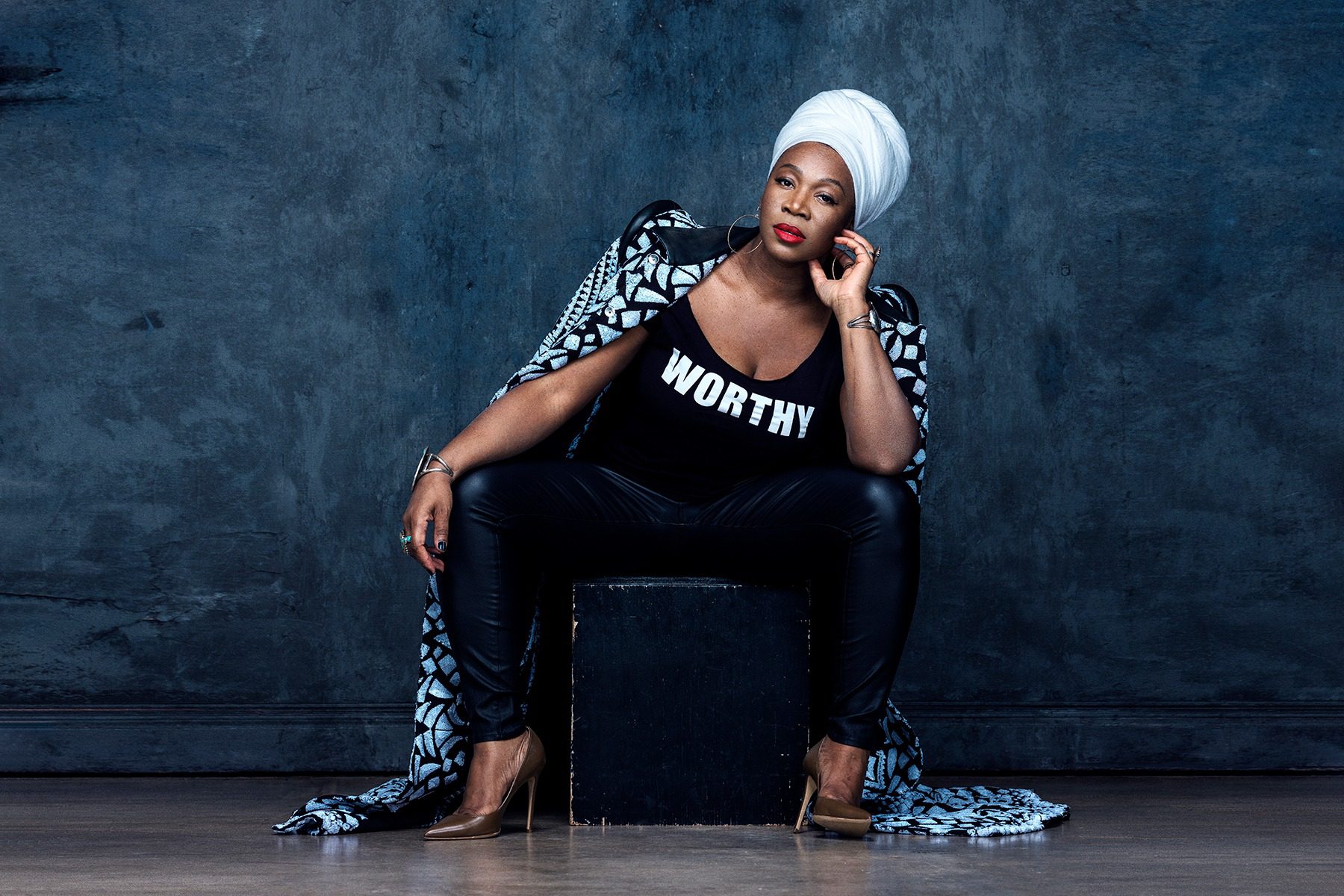
India.Arie Wants to Yank Her Music Off Spotify — But Her Label Won’t Let Her
It’s been close to three weeks since Neil Young announced his plan to remove his music from Spotify due to the platform’s ongoing support for Joe Rogan as he spread “false information about vaccines.” Young’s salvo spawned a series of intense debates — about Spotify’s responsibility for the content it beams out, about musicians’ role as activists, and about artists’ ability to control where their own output is heard.
That was all before India.Arie, an R&B veteran with a handful of Grammys and nearly a dozen radio hits, kicked down the door that Young had cracked open. “I find Joe Rogan problematic for reasons OTHER than his Covid interviews,” she wrote on Instagram. “FOR ME IT’S ALSO HIS language around race.” Spotify pays “musicians a fraction of a penny,” Arie continued, while lavishing Rogan with “$100M,” demonstrating how little the streaming platform cares for the music and musicians, especially Black musicians, that have allowed it to thrive.
After Arie spoke up, the narrative immediately turned into a slugging match between her and Rogan, but the singer says this framing is a distraction from more pressing issues. “For me it wasn’t even about exposing Joe Rogan,” Arie tells IndieLand. “It was about exposing what it’s like to be an artist of color in the business. At the end of the day, it’s about wanting to be treated well. It’s about my integrity, my dignity, and hoping to create more of that for other artists too. My dream is that what I’m doing will work, and there will be systemic changes” in the music industry.
blogherads.adq.push(function () {
blogherads
.defineSlot( ‘medrec’, ‘gpt-dsk-tab-article-inbody1-uid0’ )
.setTargeting( ‘pos’, [“mid-article”,”mid”,”in-article1″,”mid-article1″] )
.setSubAdUnitPath(“music//article//inbody1”)
.addSize([[300,250],[620,350],[2,2],[3,3],[2,4],[4,2],[640,250]])
;
});
What was your mindset before you decided to speak out about Spotify, Joe Rogan’s “language around race,” and announce your decision to pull your music from the platform?
I was sitting on the couch and I was just like, “I’m tired of this.” And by “this” I mean: Being quiet when there’s something I want to say. So I just said it, I wanted my music off. I honestly thought I would say it and then have to go into a legal situation that was more quiet. But when people started responding, that’s when I wanted them to understand what I was really saying. Social media is certainly not a place for nuance, so I did my best to explain everything, how it all interacts and how it all feels.
For me it wasn’t even about exposing Joe Rogan. It was about exposing what it’s like to be an artist of color in the business. Our biggest streaming platform is allowing this. Now it’s become a conversation of me against him — that was never my intention, and that’s not how I feel. We’ll see how many more times I can say Joe Rogan’s name; I’m getting a little tired of it. This is about the way Spotify treats artists. I’ve been saying that on my Instagram for a while. People listened to it this time because [Rogan] is involved, which has its own element of race, too.
When did you become aware of Rogan’s history using the N-word?
The video had been going around on social media. I think I became aware last year. I’m also a podcast listener, a deep listener to lots of them. I am a podcaster as well. I listened to him. Then it came to light for me, that part of who [Rogan] is. So I decided to tune out. But that was a personal conversation, it didn’t feel like I had to go online and say, do y’all know this guy does this? The comedy community knew he was doing it. But when you put Spotify in the mix, now I have to say something, because it enters my world.
“I’ve been trying to tell people all along that the music industry really is abusive.”
You’ve spoken on Instagram about why deciding to pull your music was important for you to maintain your “integrity” and “dignity.” What was the tipping point for you?
Spotify choosing Joe Rogan the way that they did, and how bold his racist statements were. A lot of racism is subtle. People don’t know what it’s like to be a Black artist and have a young, non-Black artist love your music, grow up, sound like you, and make millions of dollars while you’re still you. People don’t understand the nuances of how Black artists are often erased from Black music. Those are the things I’ve been speaking about on my Instagram over the last couple years. This was so big and loud it was a tipping point for me.
blogherads.adq.push(function () {
blogherads
.defineSlot( ‘medrec’, ‘gpt-dsk-tab-article-inbody2-uid1’ )
.setTargeting( ‘pos’, [“mid-article2″,”mid”,”in-article2″,”mid-article”] )
.setSubAdUnitPath(“music//article//inbody2”)
.addSize([[300,250],[300,251],[620,350],[2,4],[4,2],[3,3],[2,2]])
.setLazyLoadMultiplier(2)
;
});
Also on a personal level, I’m coming out of these last two years of being quiet. A lot has shifted inside of me around who I am. I can’t not say something about this. But again, I did not expect people to really listen — that’s the truth that I’m used to in the industry. Now that people are hearing me this time, I’m saying it all.
Since you have been outspoken about these issues in the past, what is it like now that people are finally listening?
When you are a musician, it is your job to make people like you. The music is almost second. Especially as a female artist. People are just supposed to like you — you’re not supposed to misspeak, look fat, date the wrong person, have your makeup look a different color. Everyone’s supposed to like you. After these last couple years, we’ve all had to look at what matters to us, who we want to be. For me, I’ve grown into a person who did more of the work to be empowered around my voice. Not just singing, but also speaking. Now that this is coming up, it feels aligned for me, that I’ve trained myself to be able to speak this way, to be bold enough, to choose my words the way I did.
Two years ago, I would’ve been like, I can’t talk about this, I’m on the road, it would’ve been an assault on my energy, and I couldn’t have handled it. Now, it feels fascinating. I’m just watching the way it’s all playing out. Fascinating is the word.
What has been the process like for you as you try to remove your music from Spotify?
I’ve been trying to tell people all along that the music industry really is abusive. These labels see what Joe Rogan is doing; they can imagine why a person of color would want to make this move. But my masters are involved with two different labels. One is Universal Motown. The other is BMG. My first five projects were with Universal, and predictably, [when I asked to take down my music], they told me no. So now we’re in a legal conversation. Basically what they’re saying is, “we don’t care if this guy is doing this, we don’t care about your dignity, the answer’s no.” (A representative for Universal Music Group did not immediately respond to a request for comment.)
My other label has been a godsend after 17 years on that type of major label. BMG sent an email right back saying, “we always support the artist, let’s get it done.” So I’ve seen both sides. But I fully expected Universal Motown to do what they’re doing. So I’m still in this conversation about how to get music off.
blogherads.adq.push(function () {
blogherads
.defineSlot( ‘medrec’, ‘gpt-dsk-tab-inbodyX-uid2’ )
.setTargeting( ‘pos’, [“mid”,”mid-articleX”,”in-articleX”,”mid-article”] )
.setSubAdUnitPath(“music//article//inbodyX”)
.addSize([[300,250],[300,251],[3,3],[620,350],[2,2]])
.setLazyLoadMultiplier(2)
;
});
This Joe Rogan conversation is what people are looking at. But behind the scenes, my journey is still continuing. I’m still getting my music off. They can make the story about him, and I get it. But it’s really about the same fight behind the scenes, a Black artist trying to be treated fairly, because [my former label] straight up said no.
“I don’t need warm fuzzy talk. I want to see what I can do.”
What legal recourse do you have open to you if they own your masters?
Sometimes it’s about relationships. I called someone who helped me in the past as far as my Motown Universal situation — they helped me achieve something that no one thought would work. I’m not gonna go into it, but when I was leaving there seven years ago, they helped me do something that no one thought would work. So I called that same person just to see what we can do. I’m trying everything, because why not?
Was your initial deal a traditional major label arrangement — you give them five or six albums and give up your masters?
The deals actually got worse after me — 360 deals came around after that. [In a 360 deal, a label gets a percentage of artist’s revenue streams outside of recorded music, including money made from touring or merchandise sales, for example.] Those weren’t around when I came. But I had a traditional deal for seven albums. They dropped me after five. And I called my mom and we celebrated on the phone. Some people think getting dropped sounds bad. We’re like, “they finally dropped me, woo!” It was a great day.
Has anyone from Spotify reached out to you since you said you wanted to take your music off the platform?
Spotify’s Artist Relations team did. We had a little talk. But it felt like there’s no more talking that needed to be done. They said I can call back whenever I want. But I don’t need warm fuzzy talk. I want to see what I can do, and if there’s any systemic change that can happen. If they can make changes for me, they can make changes for other artists like me.
Have you gotten much feedback from your peers?
Not much. I had one gospel artist call; I don’t think he would want me to say his name because he’s still in the major label system. He’s nervous. “How can I do this?” He’s a really thoughtful guy. We chatted. Other than that, no one else.
I get it. Everyone’s choosing their battles. People are on the road, they have kids, they’re doing movies. I just happen to be in a position of freedom where I can do it, because I’m not under the big system anymore — they can’t withhold my marketing dollars or anything like that. So I’m not disappointed that I haven’t heard from my peers. Two years ago, I wouldn’t have been able to navigate this one bit. But I can now, at least for now.
blogherads.adq.push(function () {
blogherads
.defineSlot( ‘medrec’, ‘gpt-dsk-tab-inbodyX-uid3’ )
.setTargeting( ‘pos’, [“mid”,”mid-articleX”,”in-articleX”,”mid-article”] )
.setSubAdUnitPath(“music//article//inbodyX”)
.addSize([[300,250],[300,251],[3,3],[620,350],[2,2]])
.setLazyLoadMultiplier(2)
;
});
View this post on Instagram
The pervasive fear in the music industry of being blackballed or retaliated against constantly seems to stand in the way of forward progress.
It’s really unfortunate. I feel like artists don’t realize that if we all really truly actually stood together, something could change. But we’re also all living day to day. People are just trying to make sure they’re ok. I get it. But it is a shame how much courage you have to muster to just tell the truth.
Is there a best case outcome for you in this? What do you hope will happen in the end?
Realistic best case outcome? Or best case outcome?
We can do both.
Realistic would be that Spotify invests real money in diverse podcast voices. Not the 100 million that they said they would spread over multiple people — I’m saying if they pay him that, find some other people that you pay the same amount. Proportional value. Pay other podcasts in relation to what you pay him.
I would also love to see the streaming rate raised to something that would provide a living wage for songwriters and producers. That’s not just Spotify; it’s also the labels. But they can change it. They need to make a choice.
And I would love to see this blow up so big that in this Copyright Royalty Board situation [Spotify has challenged a Copyright Royalty Board ruling to raise streaming royalty rates], everyone is like, just give these artists some money, a significant amount that is more aligned with what the value of the actual music is.
I’ve been thinking about this a lot too. A lot of people signed their deals before there was streaming. Now streaming came along, labels made their deals, and they’re like, “this is what you get, sorry. It’s the law.” No, it’s not the law. This is what you decided. How can we decide something different where you treat us like human beings and act like we care that you built your business?
The producer Four Tet is in a lawsuit around this issue right now — his label is applying his pre-streaming royalty, 18%, to all his streaming income, and he’s arguing that rate should be much higher.
I like the way that sounds. I’ve been having the same conversation with my lawyer. The point structure for physical sales and downloads is this, but there needs to be another number for streaming. The whole music industry is absurd, and that’s what people don’t realize.
You’ve spoken before about how the music industry has a long history of racism and sexism. In other fields, you believe that’s been reined in to some degree, but in the music industry, you said it remains “unchecked.” What would checking it look like?
My mind went to so many places. The ethical treatment of kids? Some of these artists are really young. They sign these deals at 16, 17. Labels manipulate people. They could start by having education around humane treatment, around how you deal with contracts. But that’s not realistic. I don’t know why the whole concept of cheating artists, the manipulation and the subtle lies, became the way. But that’s the way.
blogherads.adq.push(function () {
blogherads
.defineSlot( ‘medrec’, ‘gpt-dsk-tab-inbodyX-uid4’ )
.setTargeting( ‘pos’, [“mid”,”mid-articleX”,”in-articleX”,”mid-article”] )
.setSubAdUnitPath(“music//article//inbodyX”)
.addSize([[300,250],[300,251],[3,3],[620,350],[2,2]])
.setLazyLoadMultiplier(2)
;
});
The system needs to be torn down. It needs to not be run by big conglomerates. If there were small companies that deal with artists on their own, people could choose what kind of energy they want to be involved with when it comes to signing something. There are only really three major labels now. What’s your choice? A 360 deal over here or a 360 deal over there. If there were more companies, it might give some power back to the artist, but the labels would have to treat you well [to get you to sign].
View this post on Instagram
How are you holding up with the trolls going after you in the wake of your comments?
Fine. That’s what social media does: 5, 4, 3, 2, 1, here we go. Some of the Black gossip pages got upset with something I said on CNN, and I never like when the Black community gets upset with me, because I fight for the Black community and I always have. That part gave me pause for a few hours. But I’m fine, pushing through it.
As you’ve seen I’m very vocal on my Instagram, and I have been for the last couple years. It’s hard for me sometimes to not go on there and cuss everybody out. Really be like, who do you think you’re talking to? There’s a part of me that likes snapping back. But people do what they do. The fight I’m in is still the same one. I need to conserve my energy for that. My music is still not off.
I apologize because I know you’re tired of saying Joe Rogan’s name — but you’ve spoken a little bit online about your thoughts on his apology. You said that some parts of it resonated with you, but some parts felt disingenuous?
The part that I thought was ok when he said, “that’s not my word to use” — that’s exactly right. But I think he knew that there was no point he should ever be saying that word, and he was doing it to get people’s attention, to be edgy, to be an asshole comedian.
Part of what I’ve been sitting with is something that Trevor Noah said: What’s the difference between doing something racist and being a racist? When do you brand someone with that? I’ve been asking myself how I really feel about it. Is he a racist, or did he do something racist?
The last couple days, he also called everything that happened a political hit-job, which kind of walked back some of the apology in my opinion. So now I feel like this dude is on my last damn nerve. I do think it’s racist. I’m trying to give him some room to be uninformed, but I just don’t believe that. I think he knew [not to use the N-word].
blogherads.adq.push(function () {
blogherads
.defineSlot( ‘medrec’, ‘gpt-dsk-tab-inbodyX-uid5’ )
.setTargeting( ‘pos’, [“mid”,”mid-articleX”,”in-articleX”,”mid-article”] )
.setSubAdUnitPath(“music//article//inbodyX”)
.addSize([[300,250],[300,251],[3,3],[620,350],[2,2]])
.setLazyLoadMultiplier(2)
;
});
You’ve mentioned that some of the recent news reports around your actions have focused on the wrong aspects of what you’ve said. What should be their focus?
Getting my music off is the focus. The secondary focus is how can we make some systemic change so artists don’t want their music off. I would love my music to be heard on Spotify, just not under these conditions. Joe Rogan is not the reason, he was the final reason — that’s what I want people to hear. And I want people to take note that it took something like this for people to finally acknowledge a conversation that musicians have been having for so long. We just want to be paid. As a Black woman, I can’t not speak up when something enters into my industry that has this energy. As a musician and a Black woman, how could I not speak up?
